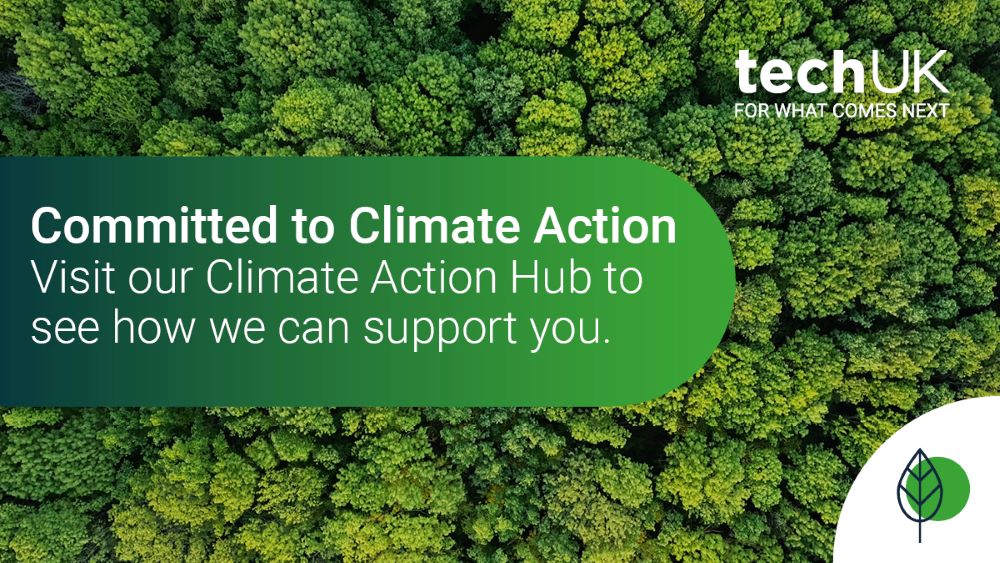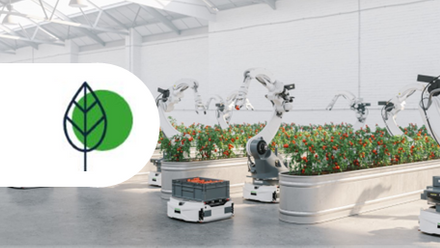Guest blog: Collaborative Clusters: Driving Industrial Decarbonisation with Tech
Guest blog by Jamie Harrison-Grundy, Management Consulting Analyst, Net Zero Transitions - UKIA Sustainability Services, at Accenture.
The Paris Agreement’s first key milestone is to halve global emissions by 2030. While some great progress has been made, heavy industry is struggling. It is power hungry, and its infrastructure has been optimised around fossil fuel inputs.
The problem is huge. We estimate that the total energy demand of EU cement, steel and chemicals manufacturing and electric vehicles, requires an onshore wind farm equivalent to the size of Spain.[1] Industry’s current level of emissions are so large that, from an environmental perspective, we must decarbonise. But from a financial perspective, it is proving too expensive to execute.
Accenture's recent Powered for Change research analysed the decarbonisation challenge and identified some potential solutions. Heavy industry’s decarbonisation relies heavily on the rapid scaling of affordable and secure low-carbon power and hydrogen. The goal is to maximise revenues while stripping out costs as quickly as possible.
Overcoming these barriers is a collective endeavour. The entire value chain, light industry, energy providers and heavy industry, all must play a part. As I will explain, it relies on digitally enabled collaboration, where data and best practices are shared like never before. Technology companies will be the driving force behind this transformation.
Light industry must target willing consumers with green premiums
Green premiums will be valuable in the early stages of decarbonisation. To date, they have not been targeted at customer segments who are prepared to pay more for green products. Light industry owns customer relationships, so it must do this targeting.
Accenture’s Our Human Moment research shows that marketing sustainable products requires a different approach to customer segmentation. Companies need good quality and diverse data to create these segments. Customers also need reassurance that green premiums are worth paying. Digital green certificates, backed up with blockchain-enabled premium traceability will help deliver this trust.
Energy providers must accelerate the scaling of clean energy
Energy providers must provide heavy industry with at-scale, affordable and secure green energy. It is vital that this infrastructure is built at the lowest possible cost.
Technology is fundamental to unlocking efficiency savings. Energy providers must digitalise their processes, from planning, design, and construction, to asset operation. Digitalisation also lays a foundation for future innovation. Energy providers can use AI to optimise renewables integration into power networks, blockchain to improve transparency in supply chains, or generative AI to bridge skills gaps.
Drive down costs of green manufacturing
Manufacturing plant that is optimised around fossil fuels must be replaced. This is not cheap. Digitalisation will similarly deliver significant capex and opex savings, by optimising the design, construction, and operation of new, green assets.
For example, digital twin simulations optimise infrastructure design. Automation enhances operations. AI, virtual reality and augmented reality technologies improve labour efficiency. And AI-driven predictive maintenance cuts costs and prolongs asset lifespans.
Expediting Decarbonisation Through Industrial Clusters
Critically, all parts of the value chain must move together. This collective endeavour relies on deep and meaningful collaboration, of which many have little or no experience.
The industrial cluster model, where industries coexist, is a promising way to foster this collaboration. It’s an area where the UK is leading the world. Clusters encourage shared resources, infrastructure, and expertise. By doing so, they can drive economies of scale and accelerate innovation.
Accenture has worked with many clusters, helping participants define business cases, operating models, partnership agreements, and governance processes. We developed platforms to support these consortiums, which form the backbone of collaboration because they enable extensive data sharing, resource optimisation, and collective problem-solving.
Harnessing Technology Solutions for Industrial Decarbonisation
Despite the challenges, industrial decarbonisation is possible. The UK’s competitive advantage in technology, innovation, industrial clusters, and collaborative spirit puts it in a strong position to lead the world.
Together, we can harness the power of technology to drive industrial decarbonisation and mitigate the impacts of climate change.
[1] From Accenture research. Assuming new generation 4MW capacity models with capacity factors 35 % and rotor diameter up to 150m; Land area estimate is based on 4MW/km2.
techUK - Committed to Climate Action
Visit our Climate Action Hub to learn more or to register for regular updates.
By 2030, digital technology can cut global emissions by 15%. Cloud computing, 5G, AI and IoT have the potential to support dramatic reductions in carbon emissions in sectors such as transport, agriculture, and manufacturing. techUK is working to foster the right policy framework and leadership so we can all play our part. For more information on how techUK can support you, please visit our Climate Action Hub and click ‘contact us’.
Latest Report
Upcoming climate events
Latest news and insights
Get our climate insights straight to your inbox
Climate, Environment and Sustainability updates
Sign-up to get the latest updates and opportunities from our Climate, Environment and Sustainability programme.
Learn more about our Climate campaign

Become a member








